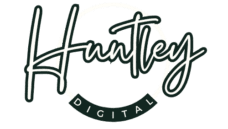For small business owners with WordPress websites, this conversation highlights some critical changes and challenges within the WordPress community. Here’s a simplified breakdown to help you understand and navigate these discussions:
What’s Happening?
- Leadership Disputes: WordPress, known for “democratizing publishing,” is being criticized for having too much control concentrated in one person’s hands (its founder, Matt Mullenweg). This centralization affects decision-making and the project’s direction.
- Calls for Change: Many community leaders and contributors want a more democratic, transparent governance model for WordPress. They propose:
- A community-led foundation to manage WordPress.
- Decentralized repositories for plugins and themes to reduce dependency on WordPress.org.
- Tensions Over Ownership: The WordPress trademark and infrastructure are under Matt’s control, and some believe that should change to ensure a fair and inclusive ecosystem.
Why Does This Matter to You?
- Stability Concerns: Disputes among leaders can impact the stability of WordPress, its updates, and its plugin/theme ecosystem. If WordPress forks (splits into new versions), it could mean decisions about migrating to a new platform or managing compatibility issues.
- Future-Proofing: Some suggest creating decentralized repositories to safeguard against potential disruptions, ensuring that your site can function independently of WordPress.org’s decisions.
Matt’s Perspective:
In response, Matt suggests these changes may not be feasible under the current WordPress branding and structure, hinting that those seeking reform might need to start fresh with a new platform.
Key Takeaways for Business Owners:
- Keep an Eye on Updates: Monitor developments in the WordPress ecosystem to understand how any changes could affect your website’s stability and functionality.
- Diversify Your Tools: Consider minimizing reliance on plugins or themes exclusively tied to WordPress.org. Evaluate alternatives to reduce risks tied to centralized control.
- Stay Flexible: Prepare for the possibility of changes to WordPress governance or even a fork. If a new, community-led version of WordPress emerges, it could offer more stability and transparency.
- Matt’s Comment Matters: His suggestion to “start fresh” under a new name reflects his resistance to relinquishing control. While this might seem daunting, it also signals potential opportunities for alternative platforms or governance structures to gain traction.
- Get Support: Reach out to your developer or consultant to discuss strategies for navigating potential disruptions, ensuring your site remains secure, fast, and aligned with your business goals.
The Bigger Picture:
WordPress’s current turmoil underscores the importance of open, collaborative leadership in open-source projects. For small businesses, the key is to remain adaptable and informed, so your website can continue to support your goals regardless of the platform’s internal challenges.
